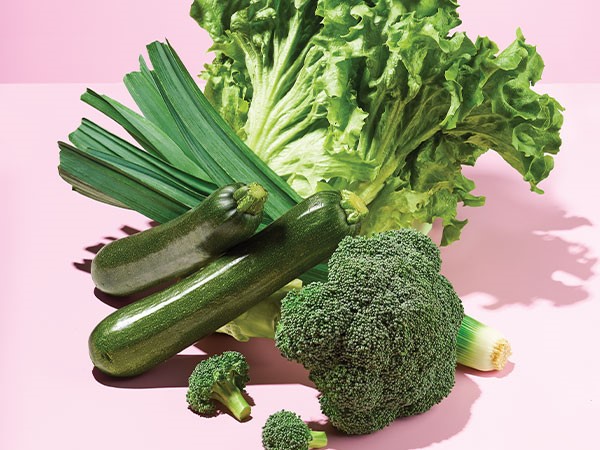Description
Eat sustainably! Get answers to all your questions about organic produce, and see how to incorporate organic fruits and vegetables into your everyday diet with our recipe recommendations.
What does organic mean?
To use the USDA Organic Seal, produce must meet strict standards in a variety of areas, including soil quality and pest and weed control. It must be grown in soil that has not had synthetic fertilizers or pesticides applied to it for 3 years prior to harvest. To be certified, the seeds cannot be genetically modified, so all organic produce is also non-GMO. Yearly farm inspections look at seed sources, soil conditions, water systems, cross-contamination, and weed/pest management.
How is organic produce grown?
Organic farmers must use natural production processes, including:
Crop rotation. Switching or rotating the crops grown in a particular field can disrupt insect life cycles, mitigate soil-based plant diseases, and lessen soil erosion.
Pest management. This can include releasing predatory insects to reduce pests or smothering weeds under mulch.
Soil fertility. Compost and natural animal manures add to soil quality. Cover crops also protect fields from wind or rain erosion.
When should I buy organic produce?
A general rule of thumb is to choose organic for items you can't easily wash and items with edible skin. The products grown with the most pesticides according to the Environmental Working Group (EWG) include strawberries, spinach, kale, nectarines, apples, grapes, peaches, cherries, and pears.
How do I store organic produce to make it last?
Keep produce hydrated by storing it in plastic bags. Put leafy greens, herbs, and even carrots directly in water, or place a moist paper towel in the bag with them. Before storing, remove the greens from root vegetables because they absorb moisture.
Organic fruit tends to have higher sugar content than conventional fruit, so it will ripen more quickly. Store only the fruit that still needs to ripen or will be eaten in the next few days on the counter—the rest should go in the refrigerator.
Can wine be organic?
Absolutely! Organic wine grapes are grown the same way as any other organic produce, following the same strict guidelines. Wine has two organic options:
- Organic wine: Contains no preservatives
- Wine made from organic grapes: May contain low amounts of preservatives
Where can I buy organic produce?
Right here at Hy-Vee! We're proud to carry organic produce from farms across the country, including Grimmway Farms, Josie's Organics, and Melissa's. We also carry Avaline wines from cofounders Cameron Diaz and Katherine Power.

